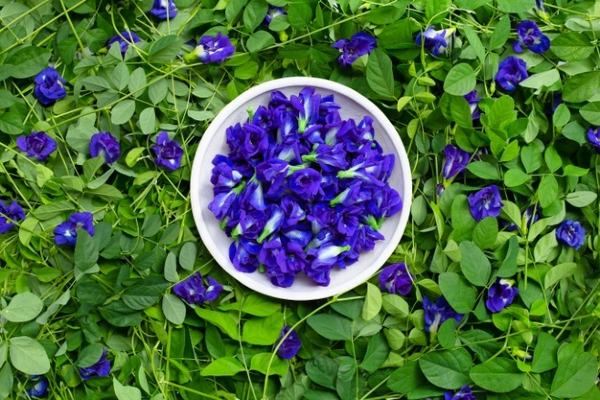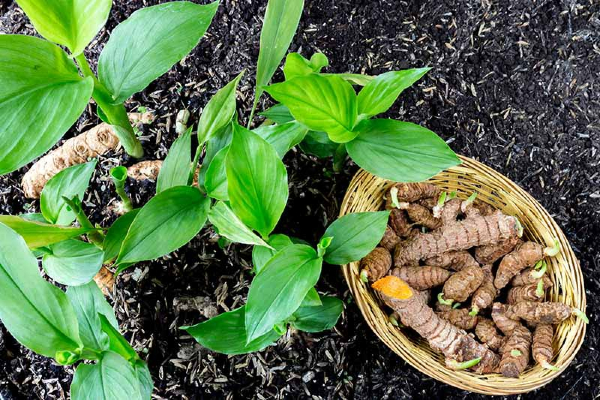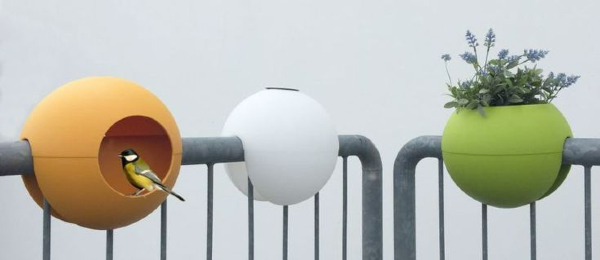Written by Ravika Ravichandran from Roots & Shoots Malaysia
High-rise buildings, highways, housing projects – it is no secret that rapid urbanisation has built our metropolitan cities on top of the natural forests which once covered the land.
Urban gardening is one small way for city dwellers to start their journey in establishing a balanced ecosystem, preventing the endangerment (or possible extinction) of local wildlife.
Whether you live in a condominium or have your own landed backyard, here are three simple ways to increase biodiversity in your own homes!
1) #SapotLokal – Let Native Plant Species Thrive!
Adapted to the scorching summer and continuous rainfall, our native plants are hardy Malaysians. That means, by planting local species, it increases the chances of you NOT ‘accidentally’ killing them, and you are more likely to attract local pollinators too!
Listed below are some of the easy-to-grow native species with cultural and edible uses:
1a) Butterfly pea flower (Clitoria ternatea)
A perennial climber known for its vivid blue petals. The key player to dye the rice blue in Nasi Kerabu or to make Instagram-worthy colour changing tea.
| High-rise friendly? Yes. Grow them on hanging pots or on the railings of your balconies in direct sunlight. |
1b) Pandan (Pandanus amaryllifolius)
A small shrub or tree with long fragrant leaves used in Malaysian cuisine as flavouring, colouring and food wraps, or even as weaving material for traditional handicrafts.
| High-rise friendly? Yes. Grow them as a potted houseplant in direct sunlight. |
1c) Turmeric (Curcuma longa)
A multi-versatile root, everyone knows turmeric for its uses in cooking, but anti-inflammatory properties of turmeric can be used to treat skin ailments too.
| High-rise friendly? Yes, but they will need a bigger pot and a spacious balcony to grow properly. |
2) Provide Shelter For Your Friendly Neighbourhood Pollinators
As any seasoned gardener will know, a diverse native plant garden is not enough to establish your mini ecosystem.
With the consistent decline of local animal and insect pollinators due to habitat loss and climate change, having more green spaces in our cities is key to their conservation.
2a) Butterfly garden
To start a butterfly garden, you will need a larval host plant and flowering adult food plants (e.g. hibiscus, ixora, and bougainvillea).
Unfortunately, most larval host plants are what we consider weeds, and are not found at most nurseries. So, it’s best to let a small patch of your garden run wild.
Find that this is not aesthetically pleasing? Try hiding them behind, or in-between, ornamental plants or as verges.
| Tip for high-rise dwellers: Group several flowering containers together on your balcony or patio to entice more butterflies. |
2b) Birdhouses/feeders
Birds are crucial to keeping the creepy crawlies in check, and are also key pollinators for certain plants, so you can help them out in the following ways:
- Birdhouses – To provide a place for them to rest or nest.
- Feeders – Do not give them processed sugary foods, only give them designated bird food.
- Baths – A place for them to cool down or take a drink.
| Tip for high-rise dwellers: Place your bird feeders on a raised platform, or away from your windows, to avoid unfortunate crashes. |
2c) Bee hotels
Bee hotels are places for solitary bees to make their nests. They are less likely to sting, and will lay their eggs in small holes, covered by a ‘mud door’.
After the new bees hatch, they will eat a supply of pollen, until it is ready to fly away. So, make sure you’ve planted lots of flowering plants for them, such as tomatoes, begonia, basil, and sunflowers!
3) Start Your Zero Waste Journey With Composting
According to the Solid Waste Management and Public Cleansing Corporation (SWCorp), in 2020, 37.56% of food waste that came from urban areas like Kuala Lumpur was avoidable.
Composting is a sustainable way to divert this waste, meaning our landfills will last longer, and so will our irreplaceable natural spaces.
And when done correctly, it can also increase the quality of the soil, helping your garden grow to its fullest potential!
For landed homes:
3a) Hot composting
It is a process of rapid decomposition at high temperatures by bacteria. Alternating layers of browns (high in carbon such as grass clippings, fruits/veggies scraps) and greens (high in nitrogen such as fallen leaves, shredded newspaper) is key to this pile.
Remember to monitor the moisture and ventilation too. Both the bin or tumbler type is suitable for hot composting.
|
Compost bin
|
Compost tumbler
| ||
|
Pros
|
Cons
|
Pros
|
Cons
|
|
Low cost for a composter
|
Thinner plastic can become brittle or chipped by tools
|
Fully sealed, odourless
|
More expensive
|
|
Larger, can hold more waste
|
Smelly
|
Tumbling drum speeds composting process with aeration
|
Difficult to spin when full
|
|
Drains excess moisture more readily
|
Not easy to access finished compost
|
Easy to access finished compost by flipping the drum
| |
|
Attract pests, e.g. rats
|
Certain models keep fresh compost materials separate from finishing compost
| ||
|
Pest-proof
| |||
For Apartments / Condos
3b) Vermicompost
Not for the faint hearted, this is actually a type of worm composting, which commonly uses red wigglers or manure worms for decomposition!
| Pros | Cons |
|
No need to turn the compost pile
|
Small, holds less waste
|
|
Odourless
|
3c) Bokashi composting
A Japanese method of composting consisting of two parts: Pickling and decomposition. How does it work, you may ask, well here’s a quick breakdown:
- Add edible food scraps to a bokashi bucket then add the bran (a starter for the fermentation).
- Alternate these layers and squish down with a plate or kitchen masher each time, till the bucket is full.
- Every other day, drain excess liquid "tea" using the spigot. This can be used as diluted fertiliser for houseplants.
- After two weeks, bury the pickled scraps in a bare spot of your garden or in a pot.
- Can then be used as normal compost after a few weeks.
| Pros | Cons |
|
Quick composting period in as little as 1 month
|
Apartment dwellers living in very small quarters may not be able to compost the pickled scraps
|
|
Odourless
| |
|
Versatile, can take many food waste types, from dairy to some bones
|
3d) Electric Composters
Technically not composting your food waste, but is actually a method that uses aeration, heat, and pulverisation which turns food scraps into a dark, sterile, dry fertiliser that’s perfect for patio containers or houseplants.
| Pros | Cons |
|
Quick composting period from as little as 5 hours
|
Cannot be used as topsoil for heavy duty gardens
|
|
Pest proof
| |
|
Odourless
| |
|
Versatile, can take many food waste types, from dairy to some bones
|
PropertyGuru Tip
For those who live in high-rise developments, you can also check with your local community gardens to see if they have communal composts. Store your food scraps in a clean pail before dropping them off.
Making The Best Out Of The Space You Have
Oftentimes, living in the cities our green spaces are carefully manicured and designed serving mostly for aesthetic values.
A neighbourhood may seem to be green, but when you take a closer look at the trees and/or bushes, you will see very little wildlife in it.
Urban gardens, when planned carefully, are a way for each individual to satisfy their own needs and make a lasting difference for our local biodiversity.
Relevant Guides:
-
7 Easy Ways To Make Your Lifestyle And Living Space More Sustainable
-
The Joys Of Attracting Wildlife To Your Home To Make It More Peaceful
-
10 Green Homes In Malaysia That Prove Eco-Friendly Living Is Possible
——————–
Jane Goodall’s Roots & Shoots is a youth-led action programme aimed at young people of all ages. The programme was founded in 1991 by Dr Jane Goodall under the Jane Goodall Institute, and it promotes the values of compassion and respect for all living things, as well as intercultural understanding and solidarity among all peoples. You can find out more at rootsandshootsaward.my, follow them on Facebook (Roots & Shoots Malaysia), or Instagram (rootsandshootsmy).
Disclaimer: The information is provided for general information only. PropertyGuru International (Malaysia) Sdn Bhd makes no representations or warranties in relation to the information, including but not limited to any representation or warranty as to the fitness for any particular purpose of the information to the fullest extent permitted by law. While every effort has been made to ensure that the information provided in this article is accurate, reliable, and complete as of the time of writing, the information provided in this article should not be relied upon to make any financial, investment, real estate or legal decisions. Additionally, the information should not substitute advice from a trained professional who can take into account your personal facts and circumstances, and we accept no liability if you use the information to form decisions.













